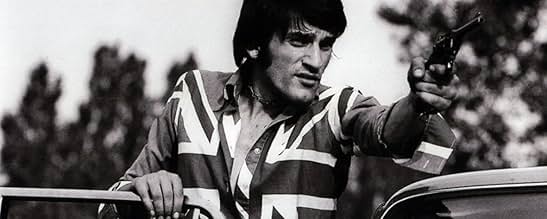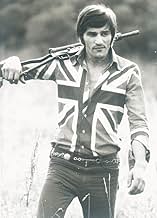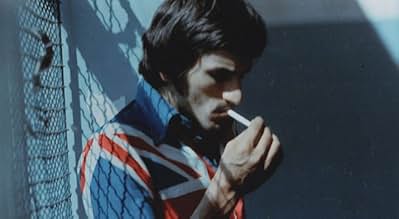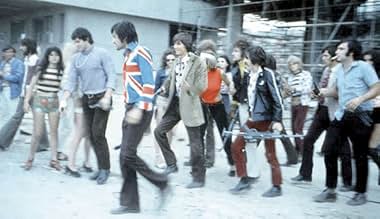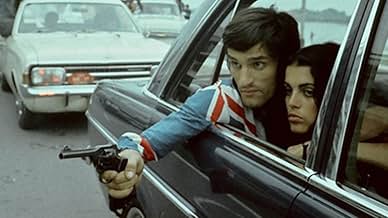This must have seemed a pretty shocking aberration in 1971 Yugoslavia, even though that nation was in some respects the most liberal and westernized of Soviet Bloc nations at the time. Indeed, it got banned, so obviously the authorities took offense, probably less at the antihero's criminal antics than at the conspicuous nose-thumbing at Tito, the Party, and national pride. But for all its calculated outrages, the movie feels forced and cartoonish as an expression of rebellion.
Our protagonist Stevan is a wiry perpetual-motion machine, his thin but muscular body frequently on undressed display, who doesn't seem to actually live anywhere. Instead, he just bounces like a pinball from one caper to another, stealing cars, picking up hippie hitchhikers (then nonchalantly shooting them dead when they try to steal HIS car), having sex with old flames (some of them prostitutes) he treats like crap, pulling armed holdups, having unconvincing fistfights, cracking wise even when he's finally arrested and beaten by police. He's always lunging around, as is the camera, save when he stops to directly address the camera. There's a lot of violence and nudity, but too often it all feels like a child's dress-up game of cops & robbers, more college-theater "anarchy" than genuinely transgressive.
Still, the movie does go out on more of a limb eventually, starting with a sequence depicting the mass trashing of a department store, which impresses if for no other reason than your wondering how they got permission to create a mess with thrown-about consumer goods that must have taken many hours to clean up. And there are subsequent sequences of rioting in the streets, offering an outre spectacle of armed youth in open revolt against the government and society in general. It's a fantasy, yet one undeniably daring for its era and place.
Even this edgier material is marred by an excess of hand-held, zoom-laden camerawork, however, which makes the film feel more shapeless and semi-amateur than free-spirited. Still, it's fascinating that "Young and Healthy" actually got made at the time, even if it was hastily withdrawn. There's a lot of groovy (and I think mostly foreign) music soundtracked, and the smugly antisocial hero (whose actor looks a little like Mark Lindsay of Paul Revere & the Raiders, and continued a highly successful career for decades despite this film's censorship) wears a whole lot of groovy shirts. Ultimately, "Young and Healthy" is more valuable as a historical curio than as a work of art (or entertainment), but that's still quite enough to make it worth a look for those interested in the cinema and politics of this period.

